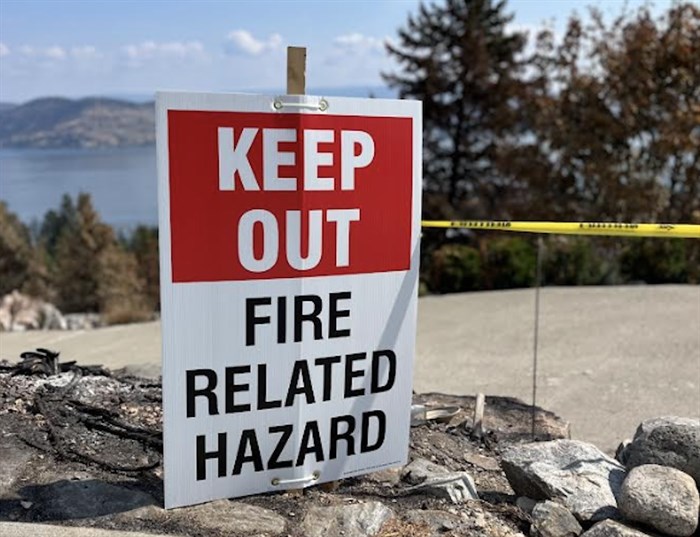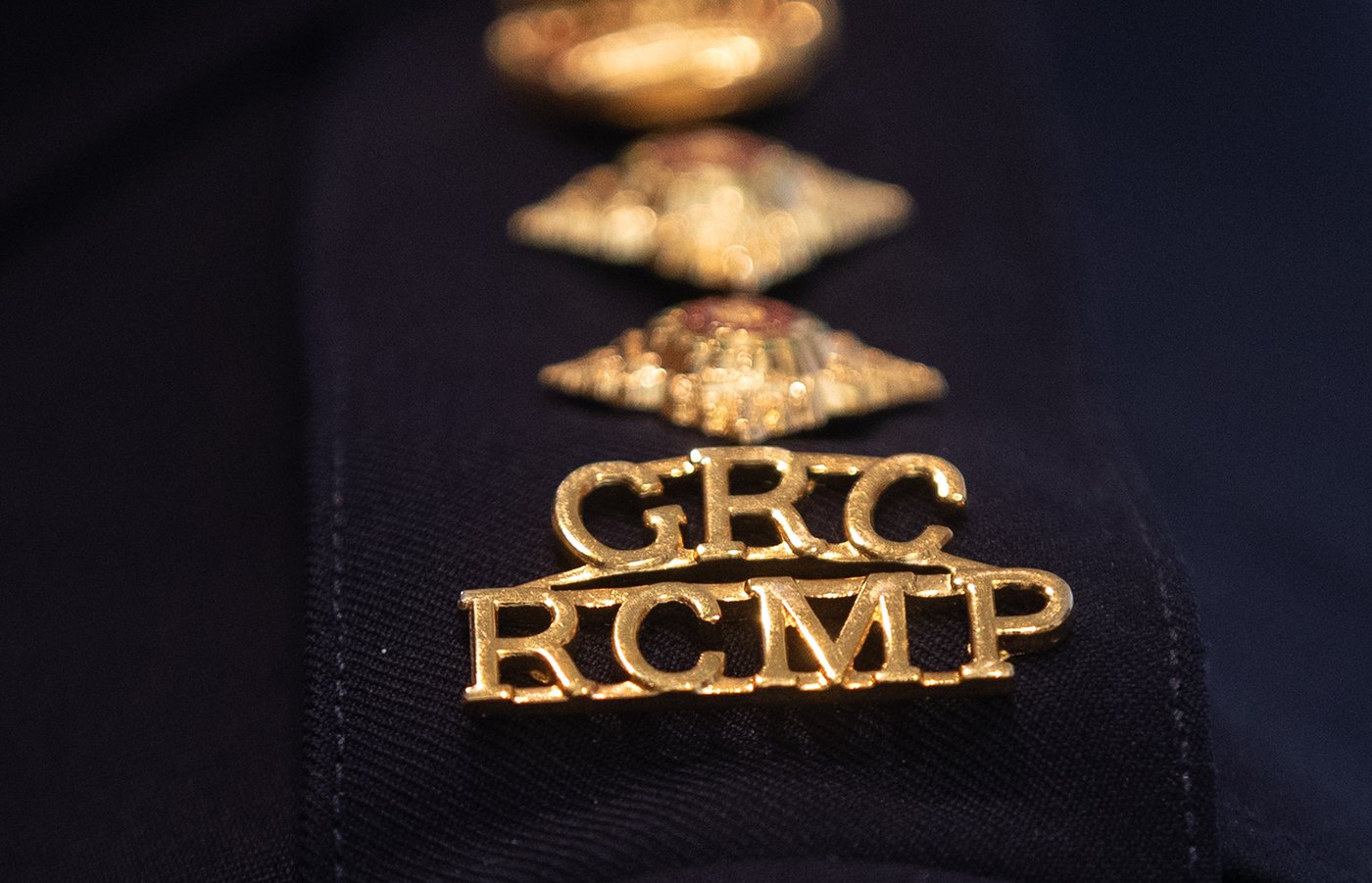Rebuilding from Okanagan wildfires bogged down by insensitive insurance companies

It’s been seven months since wildfires destroyed hundreds of homes in the Okanagan and Shuswap yet rebuilds are just now starting to get underway.
The sad part for contractor Adam Galbraith — and his biggest headache — is the struggles his clients are having with their insurance companies as they try to rebuild their lives.
“One of my clients is an older couple and the stress that these people are being put through – honestly, it’s disgusting,” Galbraith, the owner of ARG Contracting, told iNFOnews.ca
“They have never had an insurance claim in their entire life. They’ve lost the home they’ve lived in for 25 years and I’m in a meeting with them and they’re in tears. They don’t know how to deal with anything about this and the insurance company is hassling them on every single line item.”
Galbraith is working with half a dozen residents in the Royal Heights area who lost their homes in the McDougall Creek wildfire last summer.
They're on Westbank First Nation land and on septic tanks, which is a big part of the problems he’s having while dealing with the insurance companies.
“In the community I’m working in, those septic fields are older, about 20 years old, and they’re not made to code and they wouldn’t be accepted now,” Galbraith said.
“Some insurance companies are saying: ‘We’re not replacing it because it wasn’t damaged in the fire.’ But this is a rebuild. Why would you build a brand new home and not change the septic tank?”
Westbank First Nation is insisting that all these septic tanks be replaced and it’s possible they won’t issue occupancy permits if they’re not.
“I’m battling for them and I’m not going to (connect to old septic systems),” Galbraith said.
“I’d rather lose money and give my clients a proper product and know it’s something I can trust. As a builder, I have to give warranty for all of my work. It’s just not smart to do something like that.”
Right now, only one of his clients has been paid by an insurance company to rebuild so Galbraith will start next week excavating that site.
Which leads to another complication.
Galbraith did try bidding on some demolition jobs but lost out to lower bidders. He’s now faced with having to clean up after them.
“Some of them have been dramatically over-excavated,” he said. “Some of them have been under-excavated and some of them have not taken all the garbage away so the client is going to have to, now, pay me to get rid of it because the guy that got the job didn’t do it adequately.
"So, essentially, there’s another $40,000 to continue to excavate these sites to make sure they are ready to build on.”
He doesn’t know yet if insurance companies are going to pay those costs.
“The way that they explain it is, if there are any areas that have been missed, we can go back to them so, we’re going to try to do that,” Galbraith said. “I feel that’s not going to be a super easy transition the way the insurance is.”
Galbraith stressed that not all insurance companies are the same. Some have been very good but others just don’t seem to understand the trauma their clients are suffering.
“It’s like they don’t have any moral compass to what is happening in these people’s lives,” he said. “That’s what it feels like to me. It’s like it’s just numbers to them when it’s way more for everybody else.”
That’s why it’s essential for homeowners to review their insurance policies.
Given the high rate of inflation and increase in labour costs in recent years, the rebuild costs are likely to be far higher than what’s stated in insurance policies if those are based BC Assessment figures.
“The saddest part of this that I’ve seen over the last few months is that some people didn’t have adequate insurance and cannot afford to rebuild their homes, which is just so terrible,” Galbraith said.
“I’ve had four or five people call me asking me to buy their lots because of that scenario. They thought they were covered and now they’re getting the sad news that they’re getting, like, $500,000 to rebuild a house. In the market that we live in, that’s not very practical.”
Getting an accurate rebuild cost for an insurance policy means paying a couple of hundred dollars for a property appraisal. That may not seem worthwhile for someone living in downtown Kelowna but it is recommended by Galbraith for people living in wildfire zones.
He also noted that insurance companies usually don’t add in the value of renovations done by homeowners themselves, just work done by contractors who issue receipts.
READ MORE: Despite West Kelowna councillor's best effort, no public hearing on McDougall Creek wildfire
Another thing to consider is the type of water lines serving a house.
Homes built before 1995 usually had Polybutylene (also known as Poly-B) water pipes that can explode during wildfires. That means digging it all up and replacing it, which could cost $15,000. If that’s not in the insurance policy, the homeowner will be on the hook for that expense.
Galbraith has written a blog with suggestions of what insurance issues to look into, including making sure contractors coming onto the property have themselves properly insured as well.
On top of the delays and complications of dealing with the insurance companies, there’s also the challenge of designing and building the new home.
While some people may have existing plans they can use if they want to rebuild the same home, many others need new plans drawn up.
All that takes time, which is quickly running out for displaced homeowners.
“A lot of these people have, I think, a year-and-a-half or two years where they get their live-out costs paid for,” Galbraith said. “That’s another problem. It’s taken seven to eight months to get to the point of even being ready to build.”
Construction of a new house can take a year or more.
That, of course, is one more thing homeowners should check about their insurance coverage.
The ARG Contracting website can be found here.
To contact a reporter for this story, email Rob Munro or call 250-808-0143 or email the editor. You can also submit photos, videos or news tips to the newsroom and be entered to win a monthly prize draw.
We welcome your comments and opinions on our stories but play nice. We won't censor or delete comments unless they contain off-topic statements or links, unnecessary vulgarity, false facts, spam or obviously fake profiles. If you have any concerns about what you see in comments, email the editor in the link above. SUBSCRIBE to our awesome newsletter here.



